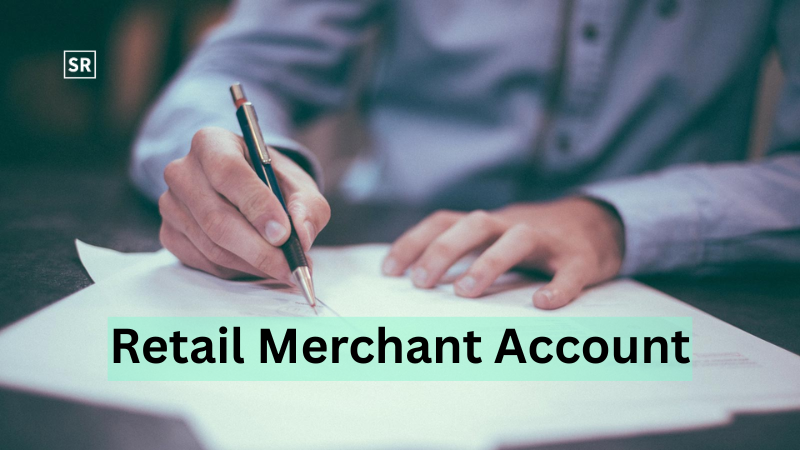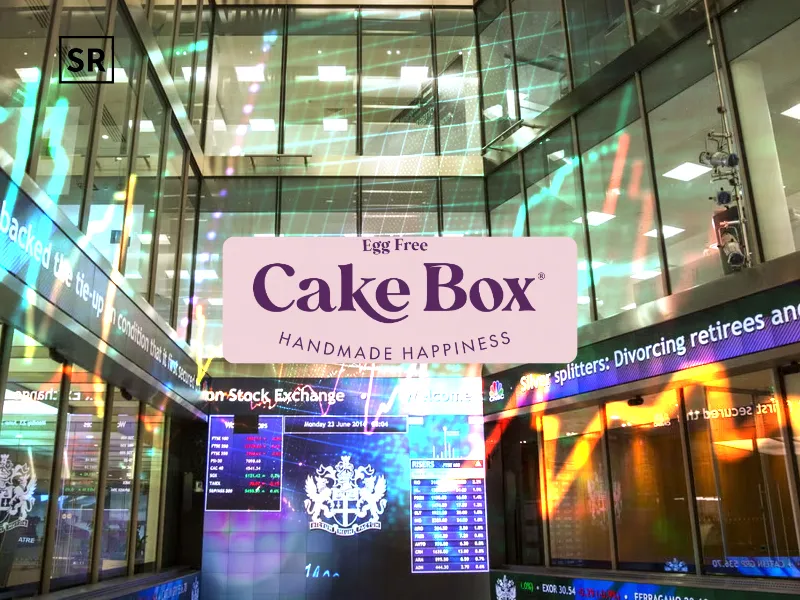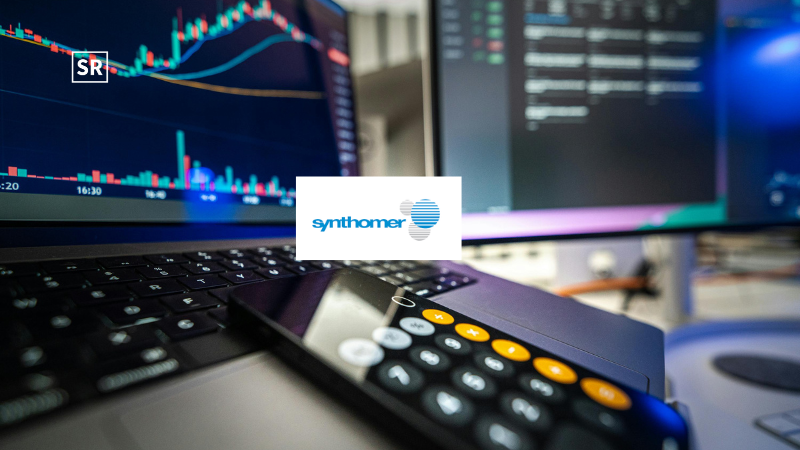
A Retail Merchant Account is a special bank account that helps businesses, especially physical stores, accept credit and debit card payments from customers. When a customer pays with a card the money first goes into this account. After a short time, the funds are moved to the business's regular bank account.
Key Features :
- Card Payment Processing: Enables acceptance of Visa, Mastercard, Amex, etc.
- POS System Integration: Works with physical point-of-sale (POS) terminals.
- Settlement Time: Funds are usually transferred to the business's main account within 1–3 business days.
- Fees Involved: Includes transaction fees, monthly service charges and sometimes setup fees.
- Fraud Prevention Tools: Includes anti-fraud filters and PCI compliance standards.
Read Also - Best Banks in Switzerland for Foreigners
What Is a Retail Merchant Account?
A Retail Merchant Account is a special bank account that lets physical stores accept credit and debit card payments from customers. When someone pays by card, the money first goes into this account before being moved to the business’s main bank account. It works with payment systems like cash registers to handle in-person payments. Unlike a regular business bank account, you can’t use the money directly from the merchant account it holds the funds temporarily until they are transferred to your main account. This makes it easier for stores to offer card payment options and manage their money.
RECOMMENDED FOR YOU

Dogecoin Investment Transforms Corporate Treasury Approaches
Kailee Rainse
Sep 18, 2025

PowerHouse Energy Group Share Price Prediction (2025-2030): Expert Analysis & Predictions
Kailee Rainse
Apr 4, 2025
Who Needs a Retail Merchant Account?
A Retail Merchant Account is needed by any business that wants to accept credit and debit card payments in person. This includes:
- Physical retail stores
- Restaurants and cafes
- Salons, spas, and beauty shops
- Grocery stores and supermarkets
- Service providers with face-to-face customers
How a Retail Merchant Account Works?
Customer Pays: A customer makes a purchase using a credit or debit card at a store’s point-of-sale (POS) terminal.
Payment Processing: The payment information is sent to the payment processor, which checks if the card is valid and if funds are available.
Funds Held: Once approved, the money from the transaction is placed into the retail merchant account temporarily.
Settlement: After a short time (usually 1–3 business days), the funds are transferred from the merchant account to the business’s main bank account.
Transaction Complete: The business receives the money, minus any processing fees charged by the payment provider or bank.
Various Merchant Accounts for Retailers
Every retailer needs a merchant account to accept credit and debit card payments, whether they run an online store or a physical shop—like a clothing boutique, beauty store, grocery shop, toy store, or electronics store. However, there are different ways to get a merchant account, and the best option depends on how many payments you process and what services your business needs.
Dedicated Merchant Account Providers
These providers create a separate account just for your business. You’ll get your own Merchant Identification Number (MIN) and you’ll need to share your business license and financial documents. Approval usually takes a few days. Once set up, the provider gives you access to tools like a payment gateway and virtual terminal, so you can securely process card payments both in-store and online. They handle the full transaction process until the money lands in your business bank account.
Merchant Aggregators
If you are a freelancer, small business, or startup, a merchant aggregator like PayPal, Stripe, or Square (Block) is a simpler option. These services use their own shared account to process transactions for many small businesses, so you don’t need to apply for your own merchant ID or submit business documents. You can start accepting card payments quickly using their POS hardware (for physical stores) or by adding a payment button to your website (for online stores). Some offer branded checkout options for an extra fee.
Directly Through an Acquiring Bank
You can also open a merchant account directly with a bank, but this is usually only done by large companies. You will need to provide your own payment gateway, handle your own security and compliance, and negotiate with card companies yourself. Because it’s complex and time-consuming, most small to medium businesses choose to go with a merchant account provider or aggregator instead.
How to Choose the Right Merchant Account Provider for Your Retail Business
When choosing a retail merchant account provider, there are some important basics every retailer should check first. After that, you can look at extra features that can help your business grow and run more smoothly.
Basic Things Every Provider Should Have:
- Follows security rules (PCI-DSS) to keep customer payment data safe
- Has an SSL certificate for secure online payments
- Uses end-to-end encryption to protect data from start to finish
- Is officially registered with the local chamber of commerce
- Has a good history of securely handling card payments
- Offers basic tools to prevent fraud and handle chargebacks
- Is clear and honest about fees and pricing
- Has responsive customer support when you need help
- Extra Features to Help Grow Your Business:
- Supports many payment options your customers like (e.g. mobile payments, bank transfers, buy now-pay later)
- Gives detailed sales reports and helpful financial info
- Has customer tools like loyalty point systems and CRM features
- Allows for automatic recurring payments (useful for memberships or subscriptions)
Different Types of Merchant Accounts
Offshore Merchant Accounts
These accounts are set up in a different country than your business. They usually let you process more money and pay less tax. They are also good if your business type is not supported by banks in your own country.
International Merchant Accounts
These accounts let you work with banks in many countries and manage all your payments from one place. They’re great for big companies with stores or offices around the world.
High-Risk Merchant Accounts
These are for businesses that have more returns, cancellations or chargebacks, or work in restricted industries. Examples are event ticket sellers, airlines, tobacco shops, or businesses in countries considered “high risk.”
Mobile Merchant Accounts
If you sell at markets, pop-up shops, or from a food truck, you may want to accept card payments on your phone. For this, choose a provider that offers a virtual terminal and cloud-based payment tools to make payments easy on the go.
How to Apply for a Retail Merchant Account
Applying for a retail merchant account is simple. Here’s what you need to do :
- Choose a Provider: Pick a merchant account provider that fits your business needs and budget.
- Prepare Documents: Get your business license, financial statements, tax ID and personal identification ready.
- Fill Out Application: Complete the application form with your business details and contact information.
- Underwriting Process: The provider reviews your application, checks your credit, and verifies your business.
- Set Up Payment Tools: Once approved, you’ll get access to payment terminals, gateways, or online tools to start accepting card payments.
- Start Processing: Connect your payment system and begin accepting credit and debit card payments from customers.
Benefits
Having a retail merchant account offers several advantages for your business:
- Accept Card Payments: Easily take credit and debit card payments from customers in-store or online.
- Faster Payments: Money from sales is deposited directly into your business bank account quickly.
- Increase Sales: Offering card payments makes shopping easier for customers which can boost sales.
- Secure Transactions: Protect customer data with secure payment processing and fraud prevention tools.
- Better Record Keeping: Track all your sales and payments in one place for easier accounting.
- Flexible Payment Options: Accept different payment types like mobile wallets, contactless, and more.
- Professional Image: Accepting cards shows customers you’re a trustworthy and modern business.
Conclusion
A retail merchant account is essential for any business that wants to accept credit and debit card payments easily and securely. It helps retailers offer convenient payment options to customers, speeds up cash flow, and provides tools to manage transactions safely. Choosing the right merchant account can boost sales, improve customer trust and support business growth. Whether you run a small shop or a large store, having a reliable merchant account makes handling payments smooth and professional.


 Follow us
Follow us Follow us
Follow us













